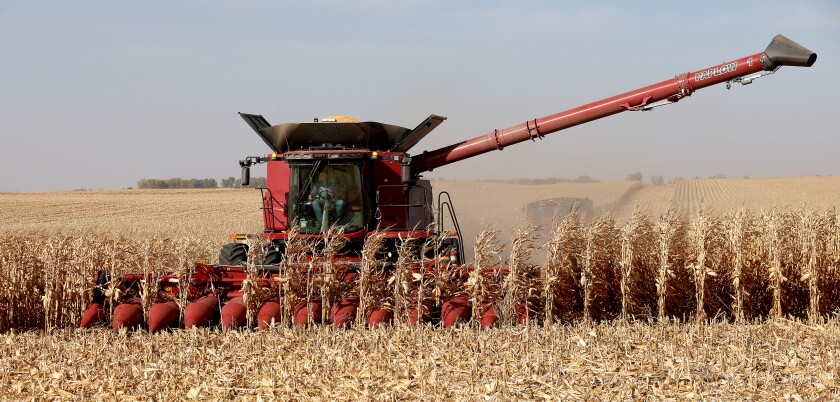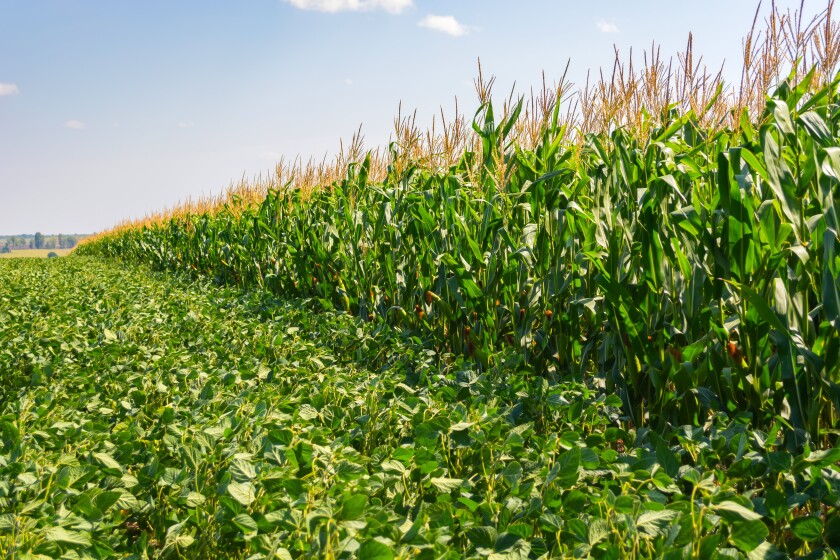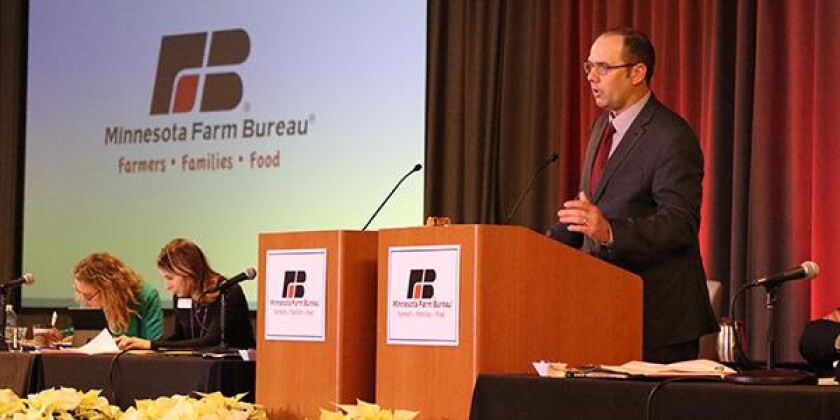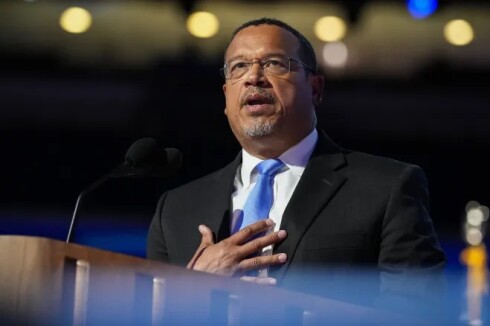This is part 1 of 5 in a series examining how the upcoming presidency of Donald Trump may impact greater Minnesota.
As President-elect Donald Trump prepares for a second term, his economic proposals have left experts wondering about the potential impact on Minnesota’s economy.
ADVERTISEMENT
Economists and industry leaders are watching closely, as proposed tariffs and trade negotiations could affect supply chains, while changes to immigration policies might affect everything from farm income to workforce availability.
Investing in business
Given many of Minnesota’s Fortune 500s — like Land O’ Lakes and General Mills — are agriculturally centered, Minnesota Business Partnership CEO and former Speaker of the Minnesota House Kurt Zellers said Trump’s pro-agriculture policies are a big talking point for Minnesota businesses.
Zellers, who served as a state representative from 2003 to 2014, now leads the Minnesota Business Partnership, which represents Minnesota’s largest businesses and Fortune 500 companies. Zellers said there is an understanding that Trump is out to protect American companies, but that the New York businessman has managed to earn trust from many in the state’s ag community.

“He's a New York blue blood, right? There's no reason for him to understand agriculture, and I think it is why a lot of farmers really were drawn to him, because he picked it up real fast and understood the plight of the American farmer,” Zellers said.
Minnesota food producers like General Mills could do better under Trump, St. Johns University professor and economist Louis Johnston said, because Trump wouldn’t impose restrictions to reduce grocery costs that President Joe Biden did in his administration.

“The Biden administration was looking at food prices, and in particular, they were looking at the effect of big food companies having too much power over grocery prices, and the Trump administration is not going to do that,” Johnston said. “They're going to drop that stuff.”
The state’s businesses also are likely keeping in mind the investments Trump made in Minnesota in 2020, Zellers said.
ADVERTISEMENT
During his last term, Trump gave $850,000 to small businesses across rural Minnesota, and Zellers pointed to a similar investment where Trump invested $3 million in broadband funding for rural Minnesota. Zellers said that while these direct investments are helpful to Minnesota businesses, the state’s large corporations are also keeping their eyes on his proposals for increased tariffs.
Trade policies and tariffs
Trump has proposed increasing taxes on imports, or tariffs, of up to 10-20% , with higher figures for countries like Mexico and China .
Johnston and St. Thomas University professor John Spry, also an economist, said they could see foreign countries like China “retaliating” and imposing tariffs on some goods made in Minnesota.

Based on how Trump imposed smaller tariffs than he promised initially in his first term, Spry said he doesn't expect tariffs to see a dramatic increase out of the gate, but he and Johnston highlighted Minnesota industries that could be most vulnerable: soybeans, corn, wheat, turkey and chicken by-products.
Trump’s administration compensated farmers for the losses that tariffs created in his last term by giving checks back to farmers who were affected, Johnston said.
“The big difference was probably that under the Trump administration, there were big subsidies to farmers in response to Chinese tariffs that were put on American farm exports,” Johnston said, adding that the tariffs were stepped down under Biden. “Since the United States reduced its tariffs on Chinese goods, the Chinese reduced their tariffs on American agricultural exports, and therefore not as much federal money went to Minnesota farmers.”
Ted Winter, owner of a family farm and president of the Rock & Nobles County Farmers Union, said he thinks a lot of farmers in Minnesota “bought in” to Trump’s reelection campaign because of these checks.
ADVERTISEMENT
“Trump came on the stage and basically said, ‘I'm going to take care of you.’ You know, ‘I feel your pain, we're all in it together, we've been abused,’ so they all bought in,” Winter said.
In Nobles and Rock Counties, where Winter oversees the Farmers Union, Trump won 60% of the presidential vote.

While Winter said Trump’s campaign promises were appealing to many farmers, he said the tariffs under Trump had drastic effects on the farm industry in Minnesota.
“Trump came in and he started a trade war,” Winter said, adding that crops like corn and soybeans often go from Minnesota to Asia. “We export a lot of our products to China … and by starting that trade war with China, we ended up losing some markets, and the price of farm products and crop prices went down.”
Minnesota Department of Agriculture Commissioner Thom Petersen confirmed that when Trump first imposed tariffs, Minnesota farmers took a big hit.

“In 2018, Minnesota had the lowest farm income. If I remember right, the average income in 2018 was $26,000. It was the lowest farm income we had had in 23 years,” Petersen said. “And so what Trump did was he followed that up with payments, and so then the farm income really ballooned in the next couple of years.”
Labor market and immigration
Minnesota officials are also watching Trump’s proposed immigration policies, such as eradicating DACA , which grants legal status to people who came to the U.S. as a child, or conducting “mass deportations.
ADVERTISEMENT
“We aren't having enough natural growth in terms of population in our state, and in addition to that, we have more people leaving Minnesota than moving into Minnesota,” said Laura Bordelon, Senior Vice President of Advocacy for the Minnesota Chambers of Commerce. “So almost all of our growth in terms of population has been from immigration, immigrants coming into Minnesota, and that's been pretty important for meeting our workforce needs.”
Johnston pointed to areas of Minnesota where reliance on immigrant labor has been high, like the Red River Valley for sugar beet farming or Southwestern Minnesota for dairy and meat processing.
Winter said he knows farmers in his area who have undocumented immigrants working on their farms and that meat packing and pork plants in the state also rely on the immigrant population for a steady workforce.
“Now across the Midwest, some immigrants do all work out of those big pork barns,” Winter said. “If they raided the plants, they would probably end up closing the plant down because they couldn't run the place.”
Eyes on the road ahead
Dan Glessing, president of Minnesota Farm Bureau, said he thinks Trump will impose what he calls “less burdensome regulations,” regarding the environment for farmers.
Glessing said that going forward, farmers will have their eyes on a new Farm Bill from Trump and are looking closely at his pick for agriculture secretary, Brooke Rollins.

Petersen said the Department of Agriculture will also be watching NAFTA, which is up for negotiation in 2026. He said these trade agreements are largely important to Minnesota and its trade relationships with countries like China, Mexico and Canada.
ADVERTISEMENT
“That’s incredibly important to a state like Minnesota, where 30% of our main commodities are exported in those two [Canada and Mexico] markets,” he said. “With President Trump, I think the concern is, you don't know what tomorrow brings, you know, and I think it would be nice for farmers to have some kind of steadiness.”
Zellers said that one consensus among Minnesota’s large businesses is that they are happy the election is over.
“Regardless of who our members voted for … the election was decisive,” Zellers said. “... That's the one thing that I would say, that from what I've heard from them since the election, is, ‘Thank goodness it's over.’ ”









